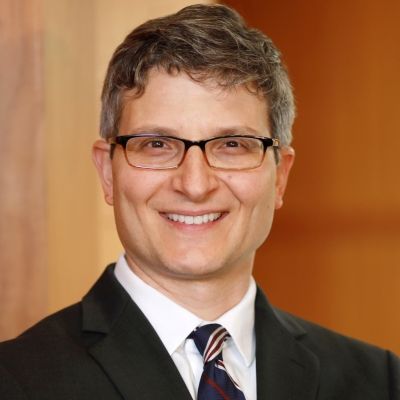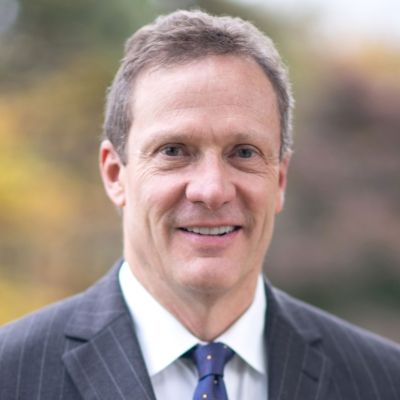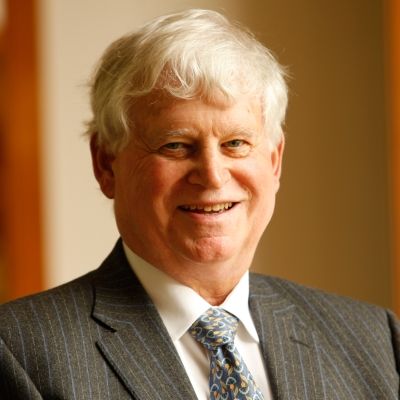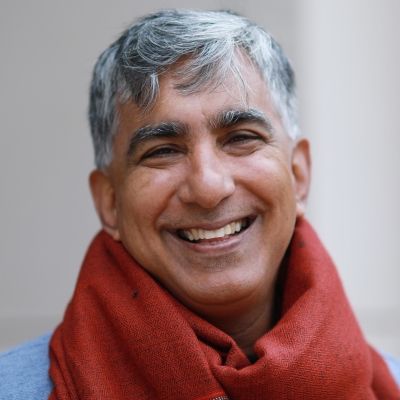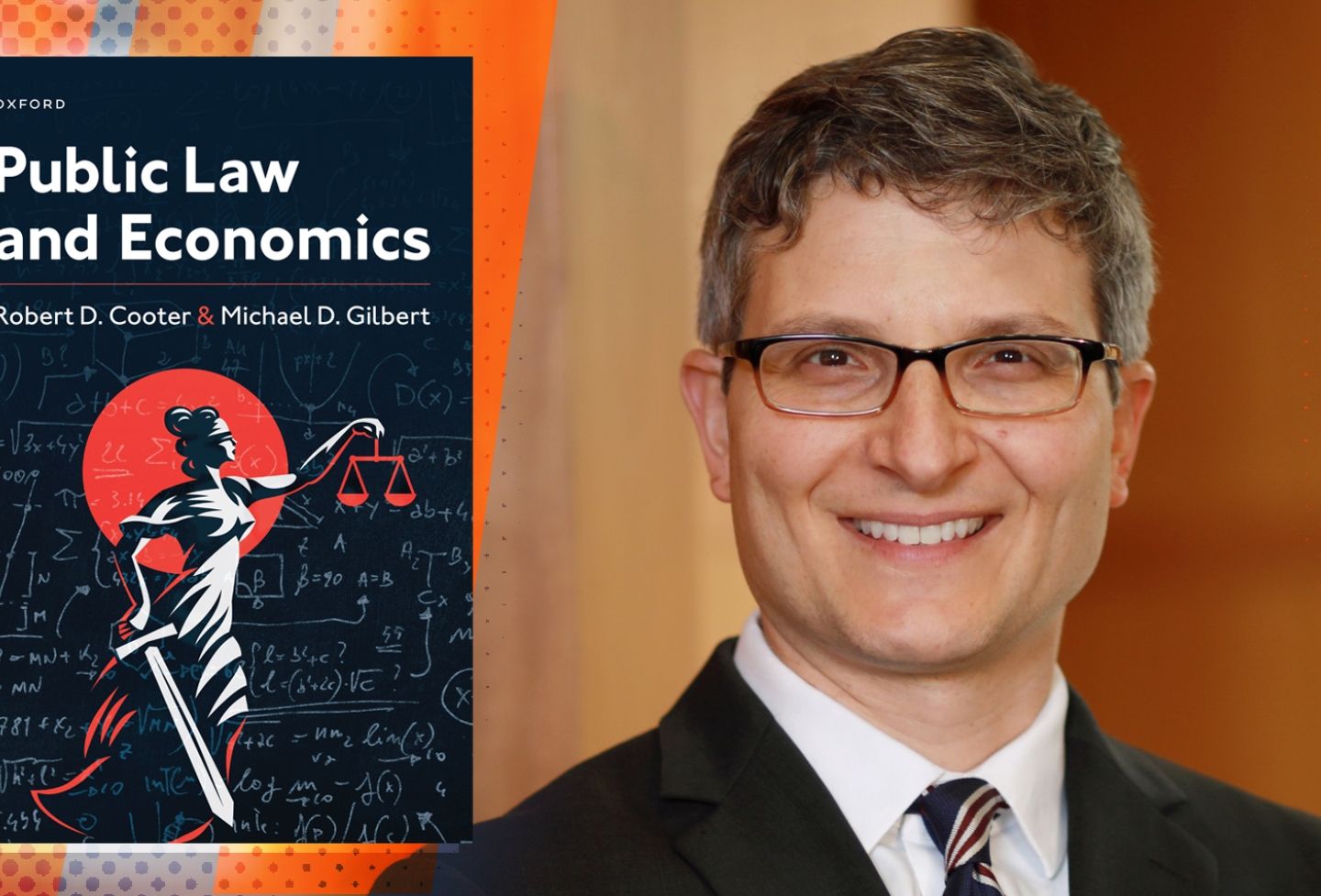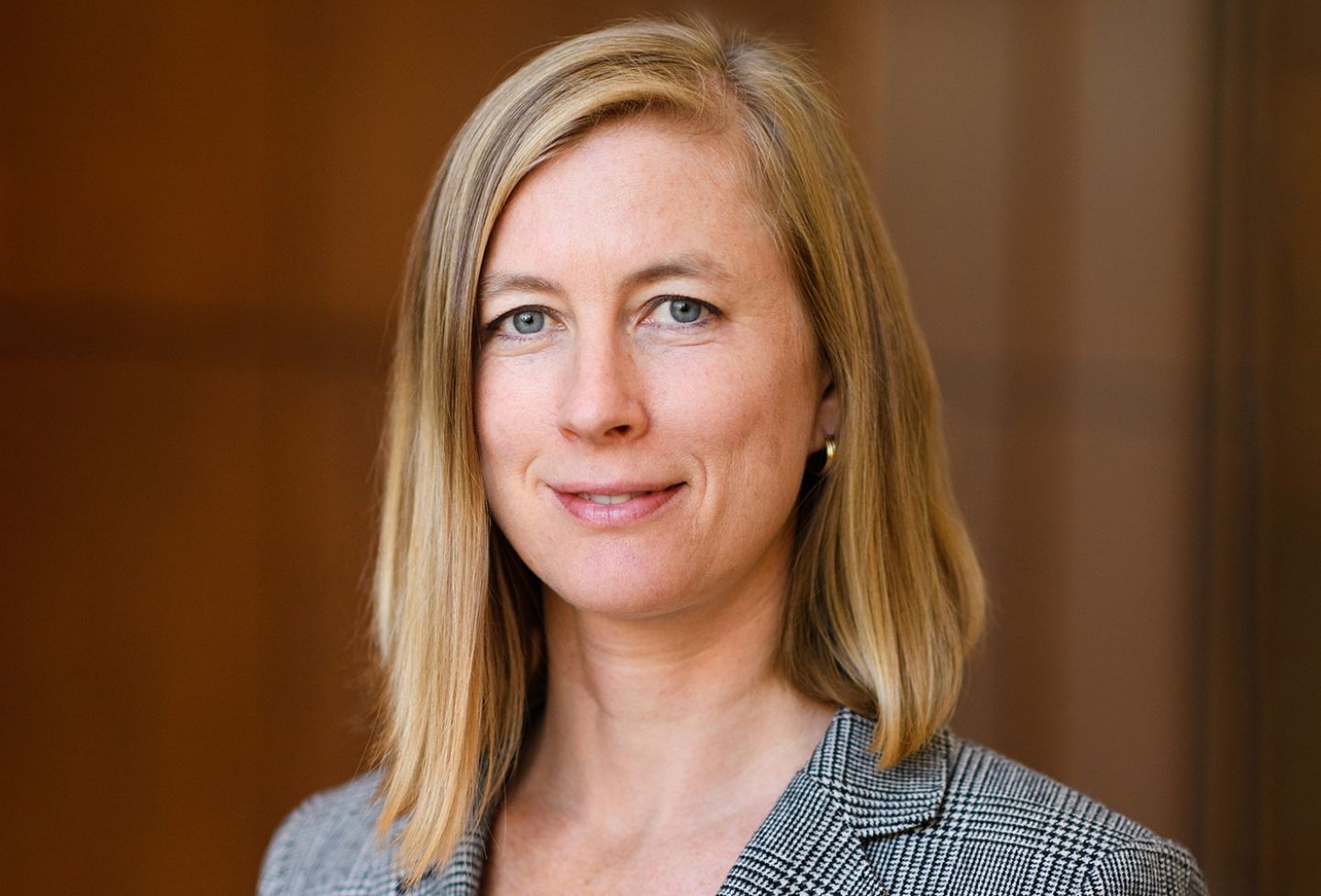About the Program
The University of Virginia has a renowned history in political economy. Beginning in the 1950s, James Buchanan and Gordon Tullock applied economics to political processes and wrote “The Calculus of Consent,” a classic study of constitutional democracy. In 1960, Ronald Coase wrote “The Problem of Social Cost,” a foundational paper on economics and law. Together these UVA professors won two Nobel Prizes, founded academic fields, and influenced thousands of scholars and students.
The Center for Public Law and Political Economy continues this tradition. UVA Law features a large and distinguished group of scholars who apply insights from economics and political science to the study of public law, including constitutional law, election law, regulation and tax. The center unites and supports their scholarship. The center also provides students, researchers and practitioners with opportunities to connect with these ideas through workshops, conferences and other events.
Oren Bar-Gill
There is concern that present-biased agents incur too much debt because of its deferred costs – concern that has influenced regulation of consumer...
Lee C. Buchheit
Lenders are perfectly free to decide for themselves whether, when, how, to whom and on what terms they will extend credit to a sovereign borrower. But...
Yonathan A. Arbel
False information causes harm, threatening individuals, groups, and society. Many people struggle to judge the veracity of the information around them...
This chapter studies political corruption and its many relationships to the law of democracy. It begins with bribery laws, which forbid officials from...
More
This article examines the impact of Greece retroactively, via legislation, changing the terms in hundreds of billions of euros worth of Greek...
Income inequality is a national preoccupation, and the public’s imagination is captured by the astronomical incomes of Valley tech billionaires and...
Faculty Director(s)
Joshua Fischman
Professor of Law
Director, Center for Public Law and Political Economy
Oren Bar-Gill
There is concern that present-biased agents incur too much debt because of its deferred costs – concern that has influenced regulation of consumer...
Lee C. Buchheit
Lenders are perfectly free to decide for themselves whether, when, how, to whom and on what terms they will extend credit to a sovereign borrower. But...
Yonathan A. Arbel
False information causes harm, threatening individuals, groups, and society. Many people struggle to judge the veracity of the information around them...
This chapter studies political corruption and its many relationships to the law of democracy. It begins with bribery laws, which forbid officials from...
More
This article examines the impact of Greece retroactively, via legislation, changing the terms in hundreds of billions of euros worth of Greek...
Income inequality is a national preoccupation, and the public’s imagination is captured by the astronomical incomes of Valley tech billionaires and...
There is a live debate going on over whether antitrust should take a broader view of the economics of market concentration. When antitrust reformers...
We examine the legal terms in the market for green bonds, debt instruments in which proceeds are earmarked, directly or indirectly, for projects with...
The SEC mandates that public companies assess new information that changes the risks that they face and disclose these if there has been a “material”...
Countries hit by unexpected crises often look to their overseas diasporas for assistance. Some countries have tapped into this generosity of their...
The conventional view is that standardized boilerplate terms represent an optimal contractual solution to the contracting problems facing parties in...
Tara Chowdhury
Faith Chudkowski
Amanda Gray Dixon
...Consequential damages have been a cornerstone of contract doctrine since the broken crankshaft in Hadley v. Baxendale. And the Hadley rule is one of...
In this article, we examine the relations between risk, the choice of foreign or local contract terms (parameters), and maturity in the sovereign debt...
Both theorists and courts commonly assume that high-dollar financial contracts between sophisticated parties are free of linguistic errors...
Aurelie Ouss
Courts routinely use low cash bail as a financial incentive to ensure that released defendants appear in court and abstain from crime. This can create...
June Carbone
The pathway to stable and secure middle-class status involves two elements: the ability to postpone family formation to facilitate human capital...
More
We examine the legal terms in the market for green bonds, debt instruments in which proceeds are earmarked, directly or indirectly, for projects with...
The past few years have witnessed a particular accusation leveled repeatedly and loudly at the U.S. Supreme Court’s conservative supermajority: that...
Michael S. Knoll
Courts and commentators have long understood dormant Commerce Clause doctrine to contain two types of cases: discrimination and undue burdens. This...
A key question in the academic and policy debates over the optimal architecture for sovereign debt has long been whether sovereigns should be given...
In this article, Mason reviews the advocate general opinion in the case against Ireland for granting illegal state aid to Apple. Advocate General...
This Article is built around a central empirical claim: most reforms and interventions in the criminal legal space are shown to have little lasting...
Lee C. Buchheit
Sovereign borrowers needing debt relief in the twenty-first century must face three sets of creditors—commercial lenders (usually bondholders)...
Lee C. Buchheit
All sovereign debt restructurings are inherently messy, expensive, exasperating, time-consuming and contentious. These are the familiar pathologies in...
We review the state of the sovereign debt literature and point out that the canonical model of sovereign debt cannot be easily reconciled with several...
Wenwen Ding
As China reformed its economy during the past 44 years, it experienced the fastest sustained expansion by a major economy in history, with an annual...
This Article considers one aspect of the ongoing debate about the moral limits of markets—namely, the purported harmful effects of market transactions...
More
This article analyses those hurdles, which are different for privately owned property such as oligarch yachts and state property such as bank deposits...
Sandra G. Mayson
How dangerous must a person be to justify the state in locking her up for the greater good? The bail reform movement, which aspires to limit pretrial...
People sometimes want to harm other people. This truism points to a blind spot in law and economics scholarship, which generally assumes that people...
More
Kim Oosterlinck
Ugo Panizza
Mark C. Weidemaier
... In 1825, France conditioned its grant of recognition to the new nation of Haiti on the payment of 150 million francs plus trade benefits. The payments...
More
Paolo Colla
An implication of the incompleteness of contracts is that there are going to be gaps and ambiguities that either side can exploit. We ask whether the...
Michael Bradley
Irving de Lira Salvatierra
W. Mark C. Weidemaier
...In 2018, Russia began inserting an unusual clause into euro and dollar sovereign bonds, seemingly designed to circumvent future Western sanctions. The...
Does the U.S. Constitution guarantee a right to a vaccine passport? In the United States and elsewhere, vaccine passports have existed for over a...
David Blankfein-Tabachnick
Shifts in academic paradigms are rare. Still, it was not long ago that the values taken to govern the private law were thought to be distinct from the...
More
This chapter describes the rise of transborder anti-bribery law in this century against the background of its twentieth-century origins. It focuses on...
More
The use of economic statecraft is at a high-water mark. The United States uses sanctions, tariffs, and import and export controls more than ever...
The constitutional rules that govern how states engage with international law have profound implications for foreign affairs, yet we lack...
Kim Oosterlinck
Ugo Panizza
Mark C. Weidemaier
...This article introduces the Haitian Independence Debt of 1825 to the odious debt and sovereign debt literatures. We argue that the legal doctrine of...
The sale of organs and gametes, the use of commercial surrogates, and trade in blood and plasma are examples of what have been termed "contested...
Pascal Saint-Amans
In this essay, we review criticisms of both the concept of international tax arbitrage and regulatory responses meant to reduce such arbitrage. We...
Peter Howard
Feedbacks within the climate-economy system are complex. The research analyzing the relationship between human activities and the climate is...
We explore how adding pro-social preferences to the canonical precaution model of accidents changes either the efficient damages rule or the harm from...
This paper, published as Chapter 16 in Johnston, Climate Rationality (CUP 2021), explains how the U.S. government has derived its estimates of the...
More
Jennifer L. Doleac
We evaluate the impacts of adopting algorithmic risk assessments as an aid to judicial discretion in felony sentencing. We find that judges' decisions...
When individuals are arrested or indicted for a crime, governments have legitimate interests in assuring that those individuals show up for future...
Hard cases present a dilemma at the heart of constitutional law. Courts have a duty to decide them—to vindicate rights, to clarify law—but doing so...
National restrictions on trade and immigration are the most salient illustrations of the current protectionist moment, but cities have played their...
Many jurisdictions determine real property taxes based on a combination of current market values and the recent history of market values, introducing...
This Essay explores how private landowners bargain with federal environmental regulatory authorities under two important federal environmental...
Comparisons between rules and standards often revolve around enforcement costs. According to conventional wisdom, rules are cheaper to enforce than...
Because judges are expected to decide cases through the impartial application of existing law, they are often reluctant to admit that they must make...
Robert D. Cooter
This chapter addresses a new and fertile research program: constitutional law and economics. Constitutional law and economics asks questions like,...
Bo Cowgill
We examine the microeconomics of using algorithms to nudge decision-makers toward particular social outcomes. We refer to this as "algorithmic social...
Those who wish to control, expose, and damage the identities of individuals routinely do so by invading their privacy. People are secretly recorded in...
More
One of the most disputed policy initiatives of the Obama administration was the Department of Labor’s fiduciary rule, which subjects brokers and...
Many popular and academic commentators identify deregulation as a cause of the 2007-08 financial crisis. Some argue that the Gramm-Leach-Bliley Act...
Behavioral Law and Economics’ effort to replace standard microeconomic assumptions with more realistic, yet still simple assumptions — without...
In the contemporary world, the domains of laws overlap a lot. With human activity (business, family, political, creative) unfolding at a greater...
This paper uses a natural experiment to analyze whether incarceration during the pretrial period affects case outcomes. In Philadelphia, defendants...
Recent years have seen a rush toward evidence-based tools in criminal justice. As part of this movement, many jurisdictions have adopted actuarial...
Sandra Mayson
This Article seeks to provide the most comprehensive national-level empirical analysis of misdemeanor criminal justice that is currently feasible...
Philip J. Cook
Ethicists who oppose compensating kidney donors claim they do so because kidney donation is risky for the donor’s health, donors may not appreciate...
This chapter in the Oxford Handbook of Law and Economics offers an economic theory of how the law of agency and partnership facilitates economic...
The legal consequences of an action often depend on information that only the actor knows. This information is typically inferred from the...
Adam Smith is not normally identified as an important figure in law and economics. However, his Lectures on Jurisprudence contain a surprising...
Michael S. Knoll
Last Term, a sharply divided Supreme Court decided a landmark dormant Commerce Clause case, Comptroller of the Treasury of Maryland v. Wynne. Wynne ...
In misdemeanor cases, pretrial detention poses a particular problem because it may induce otherwise innocent defendants to plead guilty in order to...
Lee C. Buchheit
The decade and a half of litigation that followed Argentina’s sovereign bond default in 2001 ended with a great disturbance in the Force. A new...
Should law respond readily to society’s evolving views, or should it remain fixed? This is the question of entrenchment, meaning the insulation of...
Free Market Criminal Justice explains how faith in democratic politics and free markets has undermined the rule of law in US criminal process. America...
This article, written for a symposium on Bond v. United States, connects the law and economics of contract interpretation to the Supreme Court’s...
Notwithstanding ERISA’s fiduciary requirements, a significant portion of 401(k) plans establish investment menus with options that predictably lead...
This Essay examines and explains the positions of the principal interest groups over the past four decades with respect to the two central questions...
Joseph Blocher
The drama in Ukraine has occupied global headlines for many months now and — while there are occasional signs that things are calming down — the...
This chapter considers the psychological, methodological, and normative paths taken by behavioral law and economics ("BLE") and alternative paths that...
Not enough kidneys are donated each year to satisfy the demand from patients who need them. Strong moral and legal norms interfere with market-based...
Michael Bradley
One of the primary policy initiatives instituted in response to the Eurozone sovereign debt crisis is a requirement that all Eurozone sovereign...
President Obama’s 2011 Executive Order 13,563 on cost-benefit analysis (CBA) authorizes agencies to consider “human dignity” in identifying the costs...
Lee C. Buchheit
The Eurozone debt crisis is entering its third year. The original objective of the official sector’s response to the crisis -- containment -- has...
Mark C. Weidemaier
For two decades, collective action clauses (CACs) have been part of the official-sector response to sovereign debt crisis, justified by claims that...
The Greek debt restructuring of 2012 stands out in the history of sovereign defaults. It achieved very large debt relief – over 50 per cent of 2012...
Anna Gelpern
The Greek debt crisis prompted EU officials to embark on a radical reconstruction of the European sovereign debt markets. Prominently featured in...
Anna Gelpern
This paper examines the contract interpretation strategies adopted by the International Swaps and Derivatives Association (ISDA) for its credit...
Jeromin Zettelmeyer
Within the next couple of months, the Greek government, is supposed to persuade private creditors holding about EUR 200bn in its bonds to...
Lee C. Buchheit
Perhaps Greece - a country with a debt to GDP already approaching 150 percent and set to move even higher - avoids a debt restructuring. Perhaps not. ...
Economists have documented pervasive correlations between legal origins, modern regulation, and economic outcomes around the world. Where legal origin...
In recent years, scholars have devoted considerable attention to transnational networks of financial regulators and their efforts to develop uniform...
Default on sovereign debt is a form of political risk. Issuers and creditors have responded to this risk both by strengthening the terms in...
Conventional wisdom holds that boilerplate contract terms are ignored by parties, and thus are not priced into contracts. We test this view by...
In Testing as Commodification, Katharine Silbaugh argues that debates within the standardized testing literature represent a split similar to the...
How the myriad bank regulatory agencies, including the Fed, SEC, FDIC, OCC, helped unleash the banks to create more and more destructive derivatives...
Significant intellectual and financial resources have been committed to decentralization projects in the developing world based on the idea that...
Significant intellectual and financial resources have been committed to decentralization projects in the developing world based on the idea that...
Scholars of urban law and policy tend to assume that local officials can exert some influence over city well-being. More specifically, the literature...
Lee C. Buchheit
Sovereign debt problems were once thought to be a third world affliction. They still are. But as events of the last two years have shown...
In October 2000 a hedge fund holding an unpaid debt claim won an enormous victory against the debtor, the Republic of Peru, through an opportunistic...
This article explores the growth of business outsourcing, how it works, and why two firms might logically enter into an outsourcing arrangement not...
Given the existence of contract, property, fraud, and company law, what is the purpose of securities laws? Broadly speaking, they can serve either of...
In There’s No Free Laugh (Anymore): The Emergence of Intellectual Property Norms and the Transformation of Stand-Up Comedy, 94 Virginia L. Rev. 1787...
June Carbone
In this paper, we will incorporate gender consciousness into critiques of the rational actor model by revisiting Carol Gilligan's account of moral...
Lee C. Buchheit
Conventional wisdom is that sovereigns will rarely, if ever, default on their external debts in circumstances where it is clear that they have the...
Anna Gelpern
This essay highlights a phenomenon that has no place in the conventional theory of sophisticated business contracts: the term that makes no sense as...
The recent wave of global warming legislation and litigation represents a triumph for climate change activists. But it is in no way a rational...
The study of contract law is undergoing a difficult transition as it moves from the theoretical to the empirical. Over the past few decades scholars...
This short essay conducts a review of Victor Goldberg's 2006 book entitled Framing Contract Law. Part I offers a basic overview of Goldberg's analysis...
This article addresses the timely yet persistent question of how best to regulate access to telecommunications networks. Concerns that private firms...
The role of cities and local government generally has gone unexamined by legal scholars of the constitutional common market. Yet in a highly urbanized...
Anna Gelpern
For over a decade, contracts literature has focused on standardization. Scholars asked how terms become standard, and why they change so rarely...
Sarah Ludington
The few years since the U.S. incursion into Iraq in 2003 have witnessed an explosion in the literature on odious debts - that is, debts incurred (a)...
Daniel I. Halperin
The tax rules governing deferred compensation, codified at section 409A, are harsh and complex. The rules are focused on the least important policy...
Heinz's wholly owned subsidiary purchased on the market over $131 million worth of Heinz's common shares. A few months later, the subsidiary sold 95%...
Although extralegal enforcement is widely acknowledged, the conventional understanding of written contract provisions, such as the complex and...
Omri Ben-Shahar
This article argues that the cost of odious debt ought to be borne by the party who is best positioned to prevent the accumulation of such debt...
This paper develops a model of the competition among states in providing corporate law rules. Such competition is shown to produce optimal rules with...
Anna Gelpern
This article revisits a recent shift in standard form sovereign bond contracts to promote collective action among creditors. Major press outlets...
In this article, Professor Yale reviews the contingent liability tax shelter employed by Black & Decker, and critiques the arguments the government...
This article analyzes the law and economics of market internalization: the capability of markets to both penalize and reward firms for their...
Using a hand collected new data set, this paper examines in detail a classic account of stock market manipulation - the stock pools of the 1920s...
Daniel M. Klerman
This paper assesses the impact of judicial independence on equity markets. North and Weingast (1989) argue that judicial independence and other...
This essay considers the concept of libertarian paternalism recently advanced by Sunstein and Thaler and argues that, on close inspection, this...
The rule of Hadley v. Baxendale enjoys an important place in the economic analysis of contract law. Over time, Hadley has taken on great significance...
Scott Baker
Since the rapid rise in organizational forms for business associations, academics and practitioners have sought to explain the choice of form...
Chris Sanchirico
Legal rules may be general (that is, applicable to a broad range of situations) or specific. Adopting a custom-tailored rule for a specific activity...
This report is a comprehensive explanation of the final INDOPCO regulations and corresponding changes to regulations under sections 167 and 446. The...
William A. Klein
A central question of law and economics is how complex productive activity is initiated, organized, and carried out successfully without central...
Stephen J. Choi
Network externalities may lead contracting parties to stay with a standardized term despite preferences for another term. Using a dataset of...
William W. Bratton
In April 2002 the International Monetary Fund introduced a sovereign bankruptcy proposal only to be rebuffed by the United States Treasury. Where the...
Karl M. Manheim
One of the most important features of the architecture of the Internet is the Domain Name System (DNS), which is administered by the Internet...
Devon W. Carbado
Legal academics often perceive law and economics (L&E) and critical race theory (CRT) as oppositional discourses. Using a recently published...
This essay discusses Eric Posner's book Law and Social Norms, focusing on Posner's theory of norm adherence as a costly signal of an individual's...
Eric A. Posner
This survey of the law and economics of consumer finance discusses economic models of consumer lending and evaluates the major consumer finance laws...
Lee C. Buchheit
One hundred years ago in the United States, confronted by the urgent need to find a debt workout procedure for large corporate and railroad bond...
Terrance O'Reilly
This paper examines the feasibility of a proposed criterion for the admission of expert econometric testimony. Professor David Kaye suggests that the...
Recent finance scholarship finds that countries with legal systems based on the common law provide better investor protections and have more developed...
This essay will appear as an entry in the forthcoming Encyclopedia of Law and Economics (2d ed.), published by Edward Elgar. The essay surveys the law...
When a government contracts with a private firm to supply a service previously supplied by the government, questions arise as to whether the private...
This paper develops a simple economic framework that is used to explain and critique the recent trend favoring site-specific contractual commitments...
A common debate among securities lawyers, regulators and professionals is whether and to what extent the internationalization of securities markets...
Resident Faculty
Resident Faculty
Law and economics, international relations, international law, immigration and refugee law, judging
Law and economics, quantitative methods/statistics in the law
Legislation, election law, law and economics, and direct democracy
Tax law and policy, behavioral economics
Law and economics, environmental liability
Corporate law and securities, industrial and intellectual property, economic regulation and history
Environmental law and climate change, administrative law
Property, corporations and land conservation, nonprofit organizations
Corporations, securities regulation, contracts
State, international taxation and policy
International law, including international environmental law and counterfactual diplomatic history
International law, business and economics
Criminal law and criminal procedure
International law and business, financial regulation
Employment law and discrimination, contracts, contract theory, law and economics
Comparative law and human rights
Sovereign debt
Comparative and empirical study of public law, courts and legal texts
Privacy, First Amendment, feminism and the law, civil rights, administrative law
Courses
Many core courses at the Law School integrate concepts from political economy into the study of public law. Examples include Constitutional Law, Administrative Law, International Law, Legislation, and State and Local Government Law. In addition, the Law School offers many specialized courses that explore connections between law and political economy in greater depth. The following is a list of courses offered during the current and two previous academic years. Numbers in parentheses indicate which academic year(s) the courses were offered, i.e., 2021-22 is coded (22), 2022-23 is coded (23) and 2023-24 is coded (24). (SC) stands for short course and (YR) stands for yearlong.
Capitalism and Socialism (22)
Comparative Constitutional Law (22,23,24)
Feminism and the Free Market (22,24)
Legislation and Regulation (22,23)
Monetary Constitution Seminar (22,23,24)
Regulatory Law and Policy (22,23)
Constitutional Law and Economics (23,24)
Advanced Campaign Finance (22)
Rules (22,24)
Regulation of the Political Process (22,23)
University of Virginia School of Law Vice Dean Michael D. Gilbert’s new co-authored textbook applies economic analysis to the field of public law. The publisher, Oxford University Press, has made the book available for free online.
University of Virginia law professor Mitu Gulati looks at the tragic history of Haiti’s 19th-century “odious debt” to France after islanders won their freedom from slavery, and discusses whether Haiti could recoup what it lost.
Courses
Many core courses at the Law School integrate concepts from political economy into the study of public law. Examples include Constitutional Law, Administrative Law, International Law, Legislation, and State and Local Government Law. In addition, the Law School offers many specialized courses that explore connections between law and political economy in greater depth. The following is a list of courses offered during the current and two previous academic years. Numbers in parentheses indicate which academic year(s) the courses were offered, i.e., 2021-22 is coded (22), 2022-23 is coded (23) and 2023-24 is coded (24). (SC) stands for short course and (YR) stands for yearlong.
Capitalism and Socialism (22)
Comparative Constitutional Law (22,23,24)
Feminism and the Free Market (22,24)
Legislation and Regulation (22,23)
Monetary Constitution Seminar (22,23,24)
Regulatory Law and Policy (22,23)
Constitutional Law and Economics (23,24)
Advanced Campaign Finance (22)
Rules (22,24)
Regulation of the Political Process (22,23)
University of Virginia School of Law Vice Dean Michael D. Gilbert’s new co-authored textbook applies economic analysis to the field of public law. The publisher, Oxford University Press, has made the book available for free online.
University of Virginia law professor Mitu Gulati looks at the tragic history of Haiti’s 19th-century “odious debt” to France after islanders won their freedom from slavery, and discusses whether Haiti could recoup what it lost.
Beyond the Classroom
The Law School offers many opportunities for students to explore public law and political economy. The Law and Economics Workshop hosts researchers from around the world, many of whom concentrate on public law topics. The Law and Economics Research Paper Series features work by UVA Law faculty, including many papers that draw on social science to study public law. Faculty affiliated with the center regularly supervise independent studies that result in published student notes.
Related Centers
UVA Law supports other programs and centers whose activities overlap with public law and political economy, including the Karsh Center for Law and Democracy, the John M. Olin Program in Law and Economics, the Virginia Center for Tax Law, and the Center for International & Comparative Law. Beyond the Law School, UVA is home to the Democracy Initiative, a campus-wide program focused on studying and advancing democracy worldwide. The Democracy Initiative supports the Corruption Lab on Ethics, Accountability, and the Rule of Law.
Student Organizations
A thriving community of student organizations hosts events and publishes scholarship at the intersection of public law and political economy. These include the American Constitution Society, the Federalist Society, the J.B. Moore Society of International Law, Common Law Grounds, the Journal of Law & Politics, and the Virginia Journal of Social Policy & the Law.
Professor Megan Stevenson of the University of Virginia School of Law and her team have received a $200,000 grant from the Laura and John Arnold Foundation to study the long-term effects of incarceration.
UVA Law professor John Monahan discusses how predicting violence became a concern for courtrooms and mental health practices nationwide, and developed alongside his own career.


